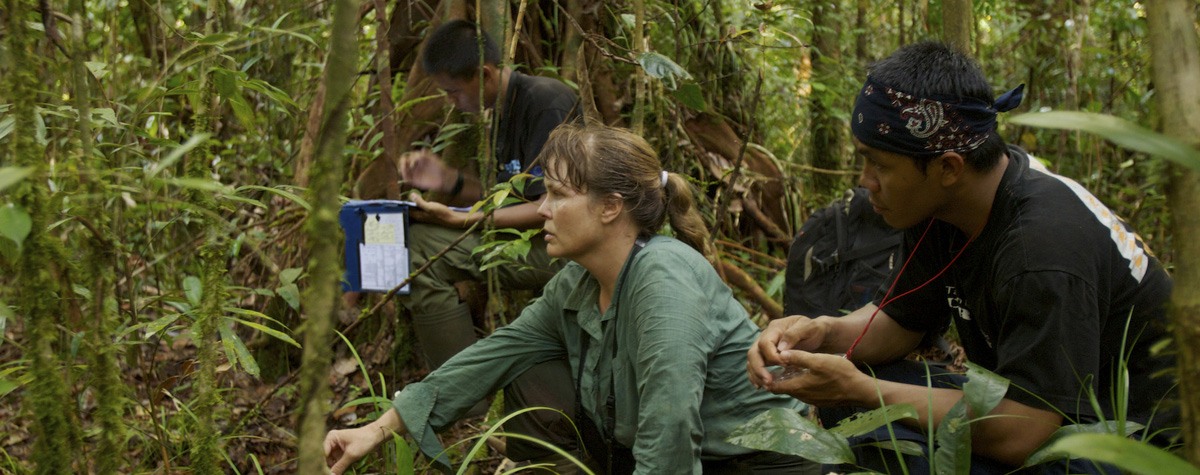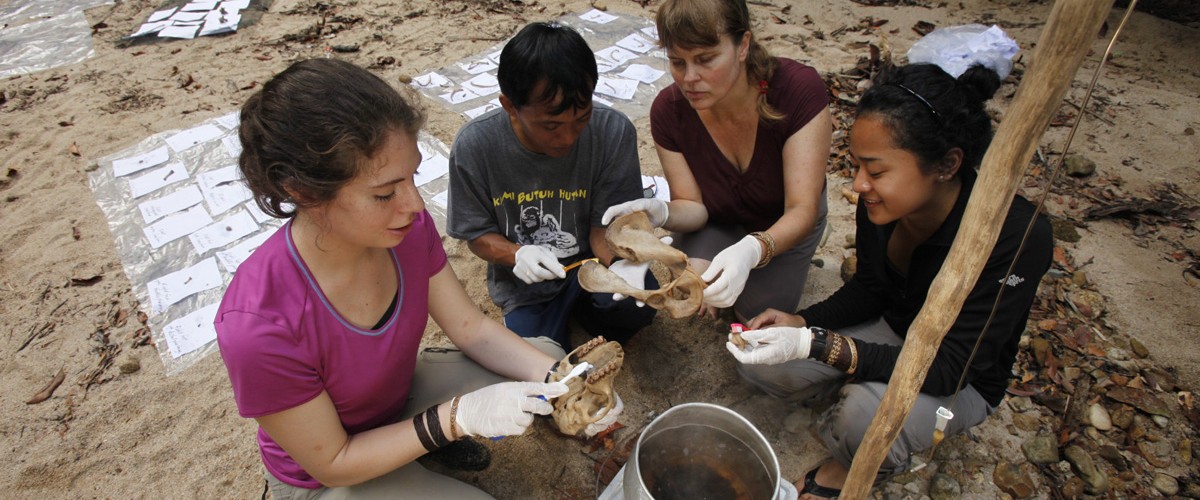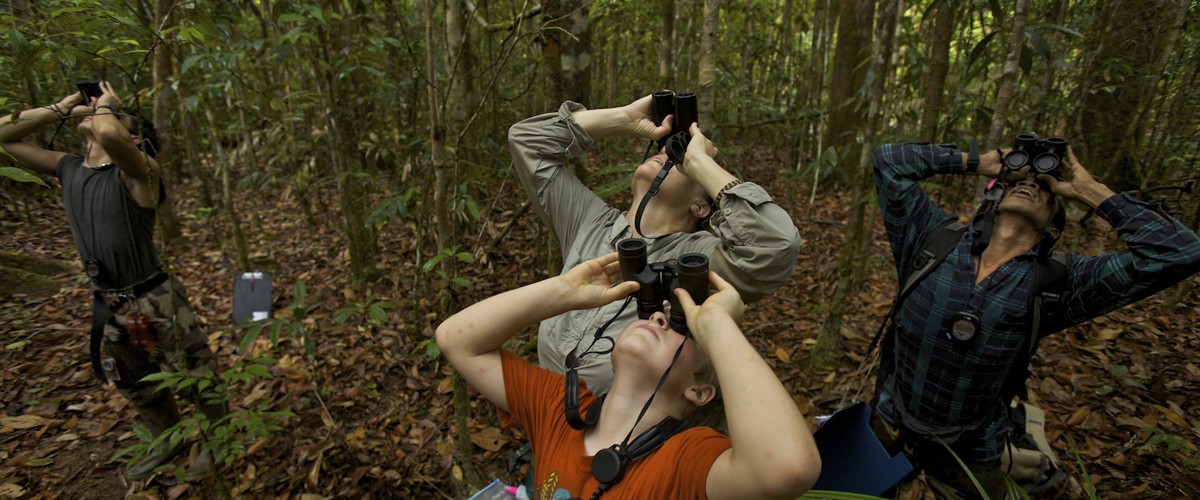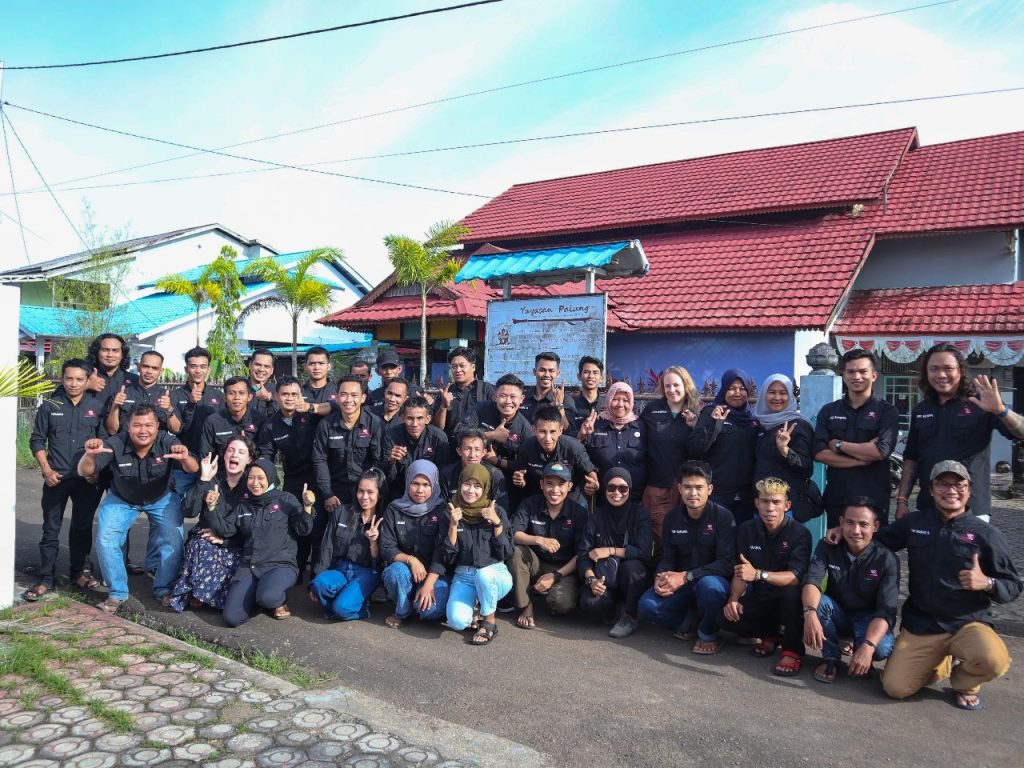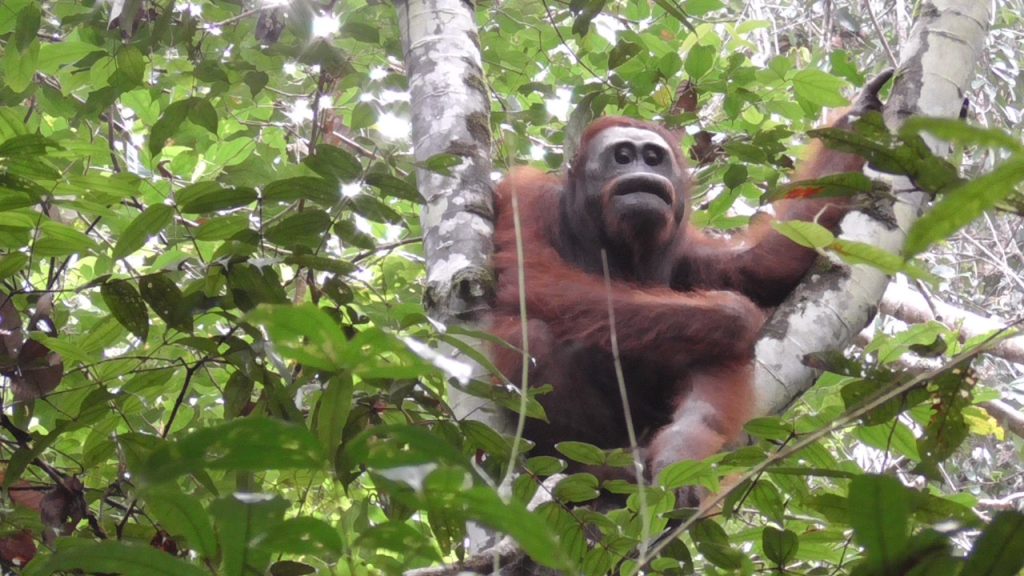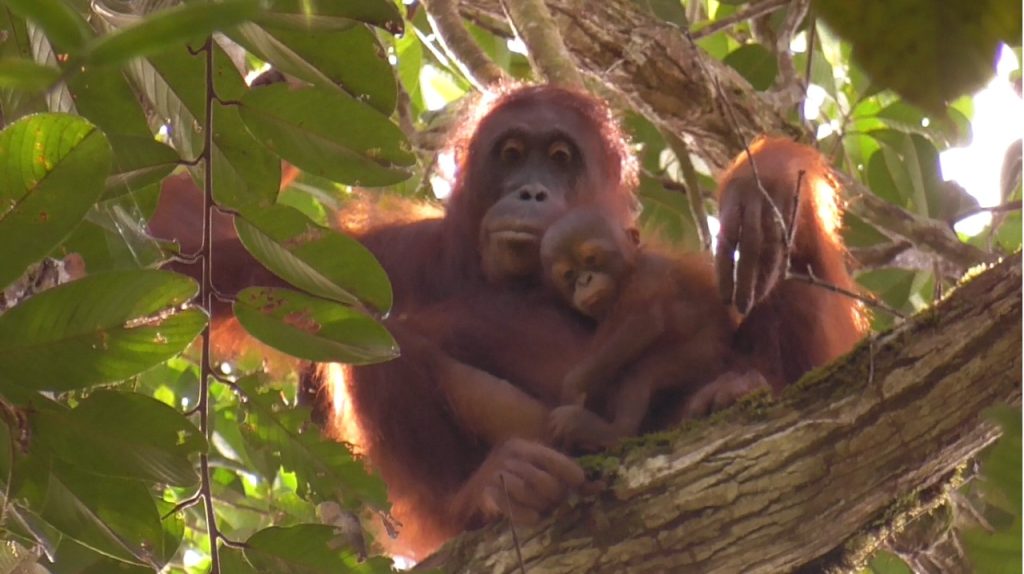By Ahmad Rizal, Research Manager
First, we, the research team, would like to wish you a Happy New Year 2024!! It is always our goal that our orangutan research produces more and more knowledge each year so that we can better protect orangutans and their forests. While we are looking forward to starting 2024 at full speed, I would like to reflect a bit on our accomplishments and some of our best moments in the forest in 2023.
The year 2023 was really the beginning of the ‘new normal.’ We all still remember how the Covid-19 pandemic caused hardships for everyone, including community organizations like ours. We are very grateful to everyone that supported us in those difficult times, so that in 2023 we could start feeling like we were thriving instead of just surviving. The year started on a very positive note with the entire GPOCP/YP team gathering and crafting a united vision, mission, and goals for 2023 by having discussions together at the Annual Meeting.
Back at the Cabang Panti Research Station, we began the search for orangutans on January 2nd and finally found one on January 7th. I met Bibi, a mother orangutan, and her son Bayas, who were having a social party with an unflanged male orangutan named Juk. This group of orangutans are permanent residents within the research area of Cabang Panti and are encountered regularly, but it was nice to kick of the year with this familiar trio. A bit later on the 19th the field assistant, Dika, managed to find another mother orangutan named Berani with her new baby, and then Yogi, another field assistant, found a third mother-offspring dyad, Kabar and her son King.
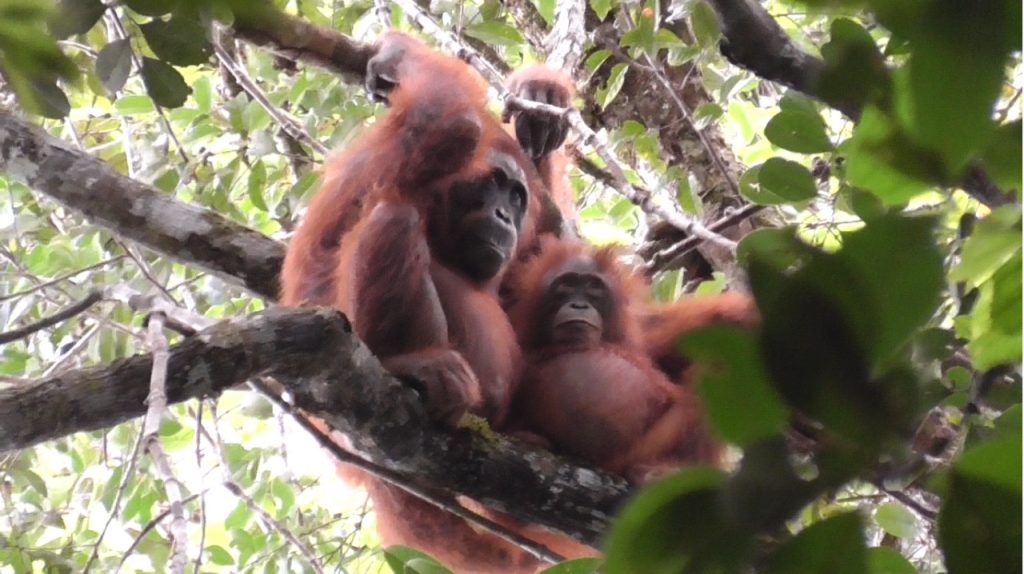
So, it was a strong start to the year for us! We were especially excited to find Berani and her new baby. The baby is still known only as IF11DEC23, which is the sort of temporary code an individual is given if they are new to us and have not been named yet. You may remember our article reporting the news of this birth in the December 2022 issue of Code RED. Berani is the daughter of the orangutan Bibi, so Berani is Bayas’ older sister. We first found Berani with the brand-new infant on December 11, 2022, and for several days we made observations on the condition and behavior of Berani and the baby. Seeing them again right away in 2023 was a great way to track the development of the infant as well as Berani’s behavior as a new mother. Berani, whose name translates to brave, appeared to be a very good mother and attentive to her first offspring, even though she was new at it. Berani has been followed since she herself was a baby, so it has been very exciting to watch this new milestone in her life.
In 2023 we saw the official start to regular data collection at full capacity at the Rangkong River research site. We had worked long and hard on plans and logistics to initiate the study of the orangutans at the Rangkong satellite research camp. It is ±6km from the Cabang Panti research station, and still within the bounds of Gunung Palung National Park. It is different in important ways, however, as the Rangkong area used to be a hotspot of illegal logging. The forest has regenerated here, but has different forest structure and plants in it, and we would like to know how orangutans deal with this different forest type. In early February 2023 we began searching for orangutans at the Rangkong. By February 6th, we began our first official orangutan follow at this new site. Natalie, our Program Coordinator at the time, met the mother and baby orangutans near the camp, she made a ‘Hooo!’ vocalization to signal the field assistants that she found an orangutan, and then the field assistants joined the orangutans until they built their night nest. We are so excited to see what our research at this site can tell us about how orangutans adapt to different levels of habitat disturbance. Already we see differences in the kinds of food available, which we expect to have implications for many aspects of orangutan behavior and biology.

Summertime! During the summertime in the US, and usually in Indonesia from June to August, we welcomed the arrival of Dr. Cheryl Knott, our Executive Director, who comes each year to see the progress of the project and provide capacity building for staff in the field. Cheryl with her husband and daughter (Tim and Jessica Laman) and Cheryl’s PhD student from Boston University, Samantha Vee, arrived in July. This year, Cheryl and Jessica, who is a Boston University sophomore, updated methods for data collection, took photos with laser cameras and taught staff in the field about changes in data collection. Samantha joined the staff in the field to learn how to collect data on orangutan behavior and develop her plans for her own thesis project. The annual visit of Cheryl and her family and any students from Boston University is always very useful and is one of the moments we look forward to every year because we can meet in the field with the big boss and learn together new things and meet new people.
In early August 2023, the project had the special honor of welcoming the Leakey Foundation and friends as guests at Cabang Panti. The Leakey Foundation is one of the instrumental funders that helped us start and then continue to conduct long-term research on orangutans here in Gunung Palung National Park. We worked together to try and give the best welcome to these visitors who were giving their time to come see our remote camp and observe how the research program works and how it is always developing. We went to the forest together to see the beauty of Cabang Panti Research Station’s wild forest and how the field staff collect data on wild orangutans. We also held demonstrations in our forest laboratory on fecal and urine sample processing. The visit ended with some extra fun because the Leakey group joined in our Independence Day celebrations on August 17th, playing some exciting games at the camp in the middle of the forest and sharing many laughs.
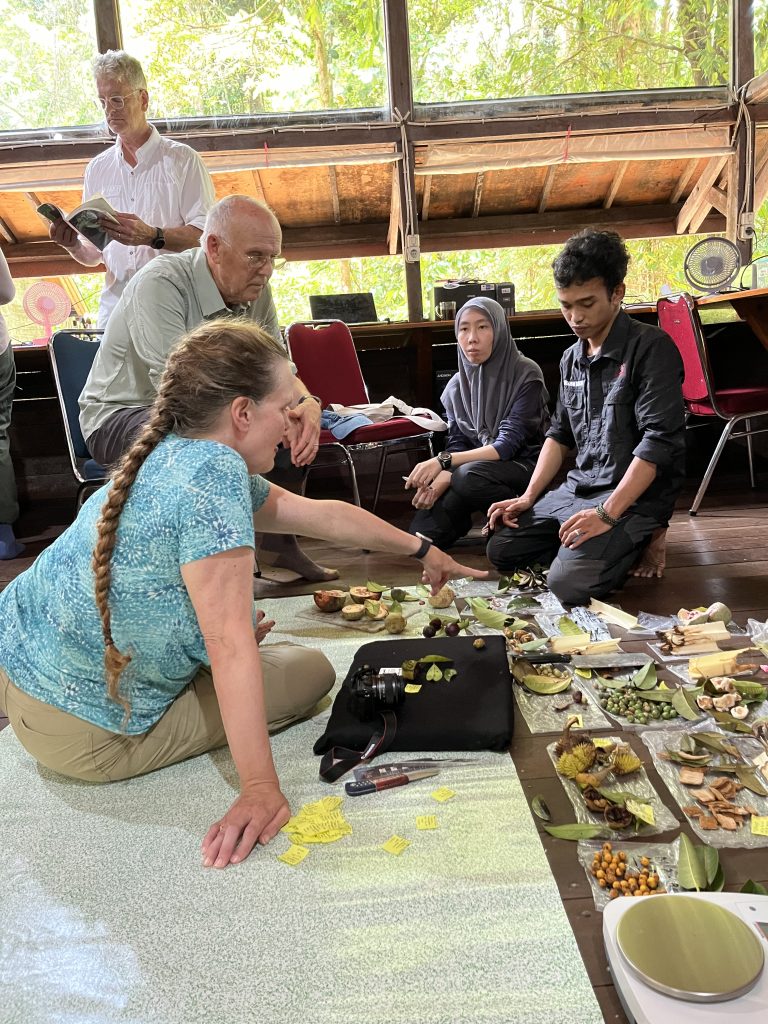
We had another special visit at the end of the year, as we had the opportunity to host Dr. Tatang Mitra Setia and Mrs. Astri Zulfa from Universitas Nasional in Jakarta. The orangutan research projects in Gunung Palung are sponsored by and in collaboration with Universitas Nasional. Dr. Tatang and Ibu Astri also joined on orangutans follows, observing how the field staff collect data on orangutan activity, then also earned about our laboratory work. Furthermore, these esteemed collaborators had the opportunity to come and see the Rangkong camp. We also had a lot of discussions about orangutans and the world of research in the field, which was very pleasant.
It was very fitting that we started the year with Bibi and her juvenile son Bayas, and ended the year in the same way, but with some new developments. On December 23rd, Bayas was found traveling alone and the field assistant tried to wait and see if Bibi was around nearby. She was not. Bayas is 8 years old and has been followed since he was a newborn. Almost every month in 2023 we encountered Bibi and Bayas, as they ranged near camp. Now, we are seeing the surest signs that Bayas is becoming independent. Even before this, Bayas had started moving at a distance from his mother (±45m) and often ate in a separate tree from her, but when sleeping at night he would still climb into his mother’s night nest. On this day in late December, the field assistants followed Bayas until he made a night nest… his very own. This marks the early stages of the transition to adolescence, and we are eager to follow his development in this new stage. This spirit of new transitions and happy milestones is one that we are bringing to the new year, 2024.
————-
Management of Cabang Panti Research Station is conducted by the Gunung Palung National Park Office (BTN-GP) in collaboration with GPOCP/YP. Scientific research is carried out in conjunction with the Universitas Nasional (UNAS) and Boston University.
